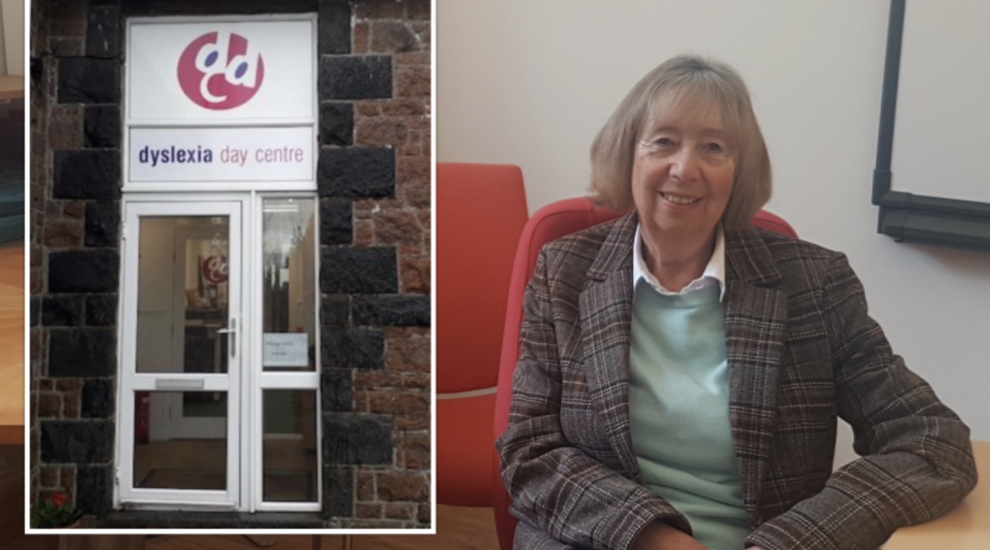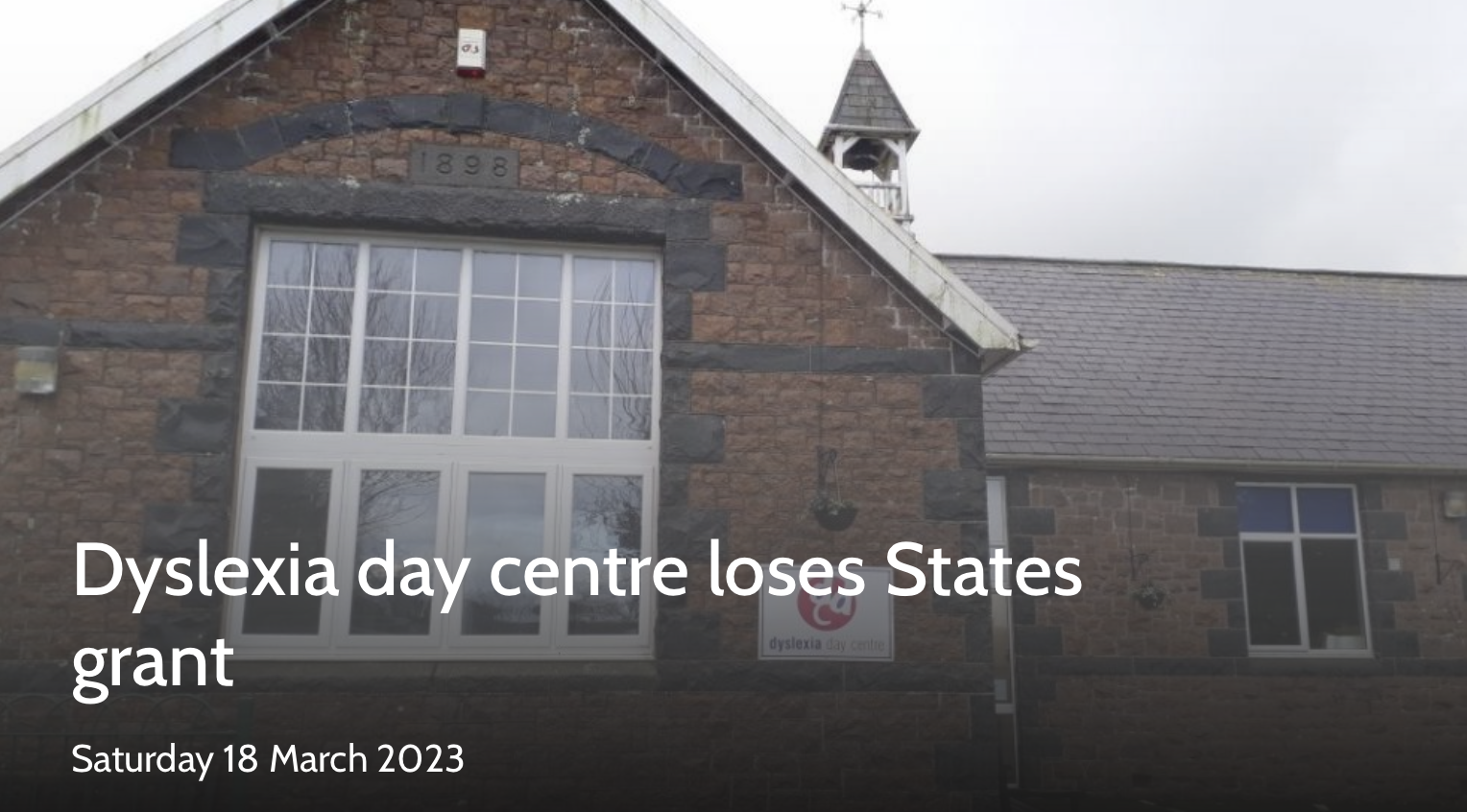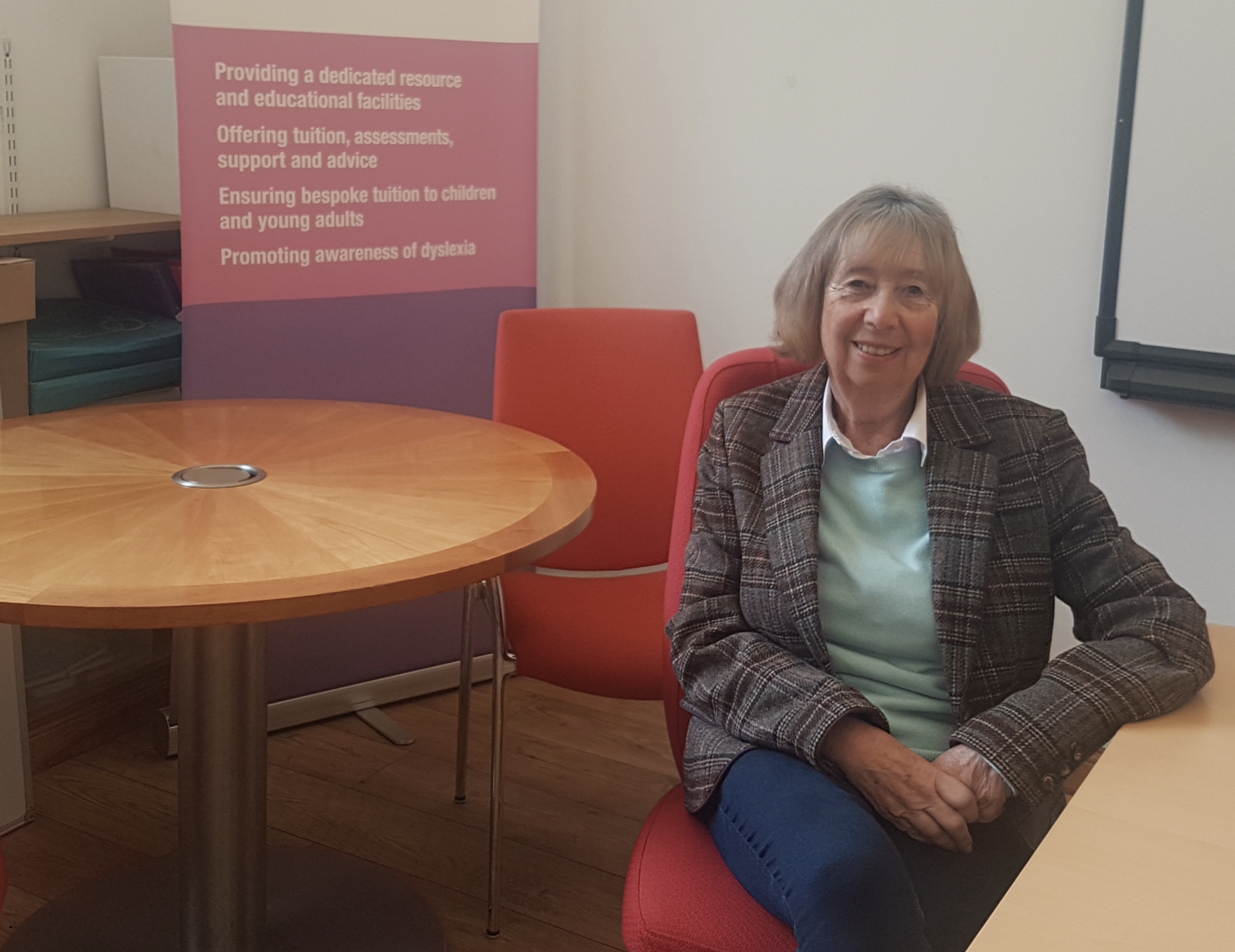


The Dyslexia Day Centre plans to keep going despite its States grant being revoked, with more of a focus on helping adults needing support with their literacy skills among its initial plans.
The grant will end at the end of this academic year with a transition period between September and December where children currently working with the teachers at the Day Centre will continue to receive the same level and type of literacy support as they currently are.
From next year, the island's primary schools won't be referring children to the Day Centre for dyslexia assessments and the additional support will be provided and managed within the school settings instead.

Pictured: The States grant for the Dyslexia Day Centre will not be paid after this academic year.
Theresa O'Hara, Manager of the Dyslexia Day Centre said the 10 staff there now all intend to continue working for the charity, including the eight teachers which currently work in the island's schools.
She said there is high demand for their services at the moment and she doesn't think that will change once the States grant ends.
The intention is to refocus the services they offer to ensure literacy support continues into adulthood.
"We will continue working at the Centre," Mrs O'Hara confirmed.
The plan is to offer after-school sessions, along with workshops, assessments and screenings for children and adults.
"We're looking to do more with employees and employers, and any businesses. We are looking to work with adults."

Pictured: Dyslexia Day Centre Manager Theresa O'Hara.
Mrs O'Hara was compelled to help other children struggling with dyslexia after seeing her own son struggle with the learning difficulty during the 1980s.
Little help was available then, either through the States or privately.
That was also the case when Mrs O'Hara was a child, and although she was not formally diagnosed as a child her mother had recognised dyslexic tendencies in her as she struggled with spelling and reading in particular.
"I was just so miserable", she remembered. "It was awful because in those days with the blackboard, you'd have to write it in your book, but by the time you've looked at the blackboard and then you started to write, you've forgotten what you've got to put down...
"So it wasn't that good and and nobody knew. You always think that you are the only person.
"Nobody knew because nobody would discuss it and you don't want to be picked out as not being able to do anything. Even though we were put in classes with the other children who have the same sort of problems."
Fast forward to the 1980s and Mrs O'Hara realised that her son was also struggling with his literacy at a very young age.
"...even in those days still dyslexia wasn't recognised over here. We had to really work hard to get children assessed. We had to bring somebody over from England on a weekly basis to assess these children. It was really difficult. And the frustration with these children, especially the ones in their early teens, because they'd gone through school with all these problems not knowing what they were."

Pictured: Dyslexia is a learning difficulty which affects understanding of words and letters.
Mrs O'Hara said the past frustrations with setting up dyslexia services have been outshone by the feeling of success when children have achieved new literacy goals.
"It's just...it's wonderful," she said.
"I'm still talking to pupils that we had in the very early days who are now adults and we even have some of their children come through and it is just lovely.
"It's just lovely to see how their confidence has grown so much and what jobs they're doing. Amazing jobs, you know, that they go to university, they've got high powered jobs. I just love hearing from them."
Mrs O'Hara said perceptions of dyslexia have changed over the years, which she is proud to have helped achieve.
"It isn't a barrier," she said. "In the early days before we started up, you just wouldn't mention it at all because I think you felt, we felt stupid, and it was awful.
"I'm sure there is probably still lots of adults here that won't say to anybody that they do struggle to read or they do struggle to write. It's slightly easier nowadays with laptops and things and spell checks, but you've still got to have a rough idea how to spell the word, otherwise you're not going to get it.
"So we'd like to work with more adults just to build up their confidence because once you build your confidence up then you would try. But if you've got no confidence, you're not going to want to try and do anything."
Comments
Comments on this story express the views of the commentator only, not Bailiwick Publishing. We are unable to guarantee the accuracy of any of those comments.